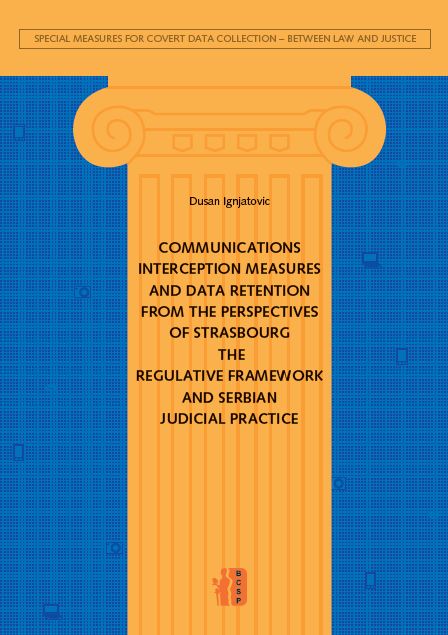Communications Interception Measures and Data Retention from the Perspectives of Strasbourg, the Regulative Framework and Serbian Judicial Practice
Communications Interception Measures and Data Retention from the Perspectives of Strasbourg, the Regulative Framework and Serbian Judicial Practice
Author(s): Dušan Ignjatović
Subject(s): Politics / Political Sciences, Politics, Social Sciences, Civil Society, Government/Political systems, Security and defense, Criminology, EU-Approach / EU-Accession / EU-Development, Politics and Identity, Peace and Conflict Studies
Published by: BCBP Beogradski centar za bezbednosnu politiku
Keywords: Privacy; Freedom; Totalitarian Regimes; Secret Police; Surveillance; CCTV; Hidden Cameras; Human Rights; European Court of Human Rights;
Summary/Abstract: The security vs. privacy dilemma has been a subject of debate for decades. Even through the right to privacy is not decidedly affirmed by the constitutions of some democratic countries, it is clear that without privacy freedom would not be possible. This conclusion is confirmed by the histories of autocratic and totalitarian regimes, which have deployed secret police to suppress privacy and individual freedoms. On the other hand, the rise of new threats to security suggests freedom is not possible without protection. From the perspective of those who believe control is necessary, the problem lies in the fact that the impossibility of monitoring illegal activities makes it difficult to bring those responsible to account. On the other hand, tracking, surveillance, wiretapping, CCTV and hidden cameras are causes of dismay to those who have experienced draconian totalitarian regimes.
- Print-ISBN-13: 978-86-6237-114-0
- Page Count: 25
- Publication Year: 2015
- Language: English
- eBook-PDF
- Introduction

